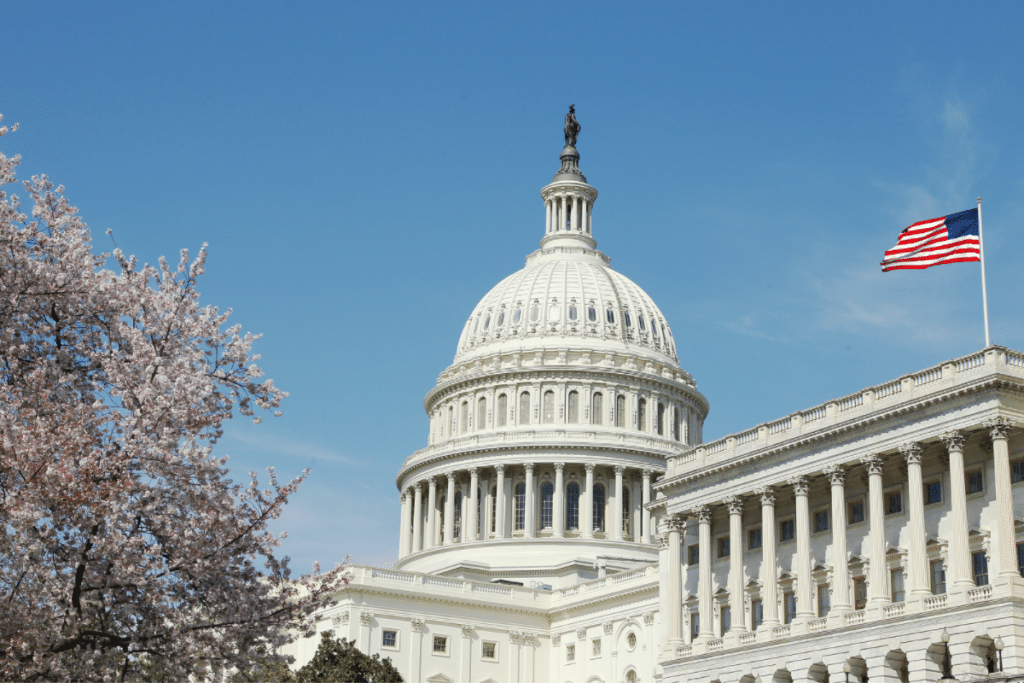A wave of bipartisan financial legislation is making its way through Congress even as the US House breaks for summer recess. Some vital and important new legislation has already passed the House with near-universal support. These bills target everything from IPO reform and senior protection to fintech risk and retrospective rule analysis. Compliance teams should pay attention to how these measures may reshape reporting obligations, supervisory exams, and investor access.
SMART Act
Setting Manageable Analysis Requirements in Text Act of 2025
Introduced: Senate (Jan 2025)
Sponsor: Sen. James Lankford (R-OK)
Status: In committee
What it does:
Requires federal agencies to build in a framework for retrospective review of “major rules” when proposing or finalising them. Agencies must compare the expected vs actual costs and benefits post-implementation, improving regulatory transparency and accountability.
Compliance impact:
For regulated firms, this introduces the potential for more dynamic rule environments, where regulations could be rolled back, amended, or strengthened based on performance. Legal, risk, and compliance teams would need to monitor these post-hoc reviews and adjust frameworks accordingly.
Chance of passing:
Moderate. Republicans support regulatory rollback and performance auditing, but Democrats may resist any perceived weakening of federal oversight. Bipartisan traction would be needed.
TRUST Act
Tailored Regulatory Updates for Supervisory Testing Act
Introduced: House
Sponsors: Rep. Tim Moore (R-NC), Rep. Ritchie Torres (D-NY)
Status: In committee
What it does:
Raises the consolidated asset threshold for community banks eligible for extended supervisory exam cycles—reducing regulatory frequency and compliance burdens on smaller banks.
Compliance impact:
For smaller institutions, this eases audit pressures and compliance costs, freeing up resources for operational priorities. But for regulators and third parties, longer gaps between exams may raise risk oversight questions.
Chance of passing:
High. It’s bipartisan and aligns with long-standing calls for proportional regulation for smaller banks.
Middle Market IPO Act
Middle Market IPO Underwriting Cost Act
Introduced by: Rep. Jim Himes (R-CT)
Status: Passed House (voice vote)
What it does:
Mandates a study into the underwriting costs of IPOs for small and mid-sized companies, with the goal of making the public listing process more accessible and cost-efficient.
Compliance impact:
No immediate compliance effect, but potential downstream impact. If future legislation or SEC rules lower IPO costs, this could increase public listings, which could trigger new compliance obligations for firms entering the market.
Chance of passing:
High. Already passed the House with no opposition and has broad business community support.
Equal Opportunity for All Investors Act
Equal Opportunity for All Investors Act of 2023
Introduced by: Rep. Mike Flood (R-NE)
Status: Passed House (voice vote)
What it does:
Expands access to private markets by creating an exam for individuals to qualify as accredited investors, allowing knowledgeable investors without high income or net worth to participate in private offerings.
Compliance impact:
Could significantly broaden the accredited investor base, increasing fundraising opportunities for private firms. However, it may trigger new due diligence and disclosure responsibilities for investment managers and intermediaries.
Chance of passing:
High. Passed House unanimously; Senate support is likely.
Financial Technology Protection Act
Financial Technology Protection Act of 2025
Introduced by: Rep. Zach Nunn (R-IA)
Status: Passed House (voice vote)
What it does:
Establishes an independent working group to study and recommend policy for combating terrorist financing, money laundering, and other illicit uses of fintech—including crypto and digital assets.
Compliance impact:
Signals further scrutiny on fintech, especially in relation to AML. Financial institutions using or partnering with fintechs should anticipate future guidance or obligations stemming from the taskforce’s findings.
Chance of passing:
High. With bipartisan momentum and focus on national security, this is well positioned for Senate consideration.
Senior Security Act
Senior Security Act of 2025
Introduced by: Rep. Ann Wagner (R-MO) and Rep. Josh Gottheimer (D-NJ)
Status: Passed House (voice vote)
What it does:
Creates a dedicated Senior Investor Taskforce within the SEC to study and address financial exploitation of older Americans.
Compliance impact:
Firms dealing with retail investors, especially financial advisors, brokers, and insurers, may see additional reporting or suitability requirements related to senior clients. Best practices on fraud prevention and disclosure will become more important.
Chance of passing:
Very high. Strong bipartisan support and a clear public interest mission.










